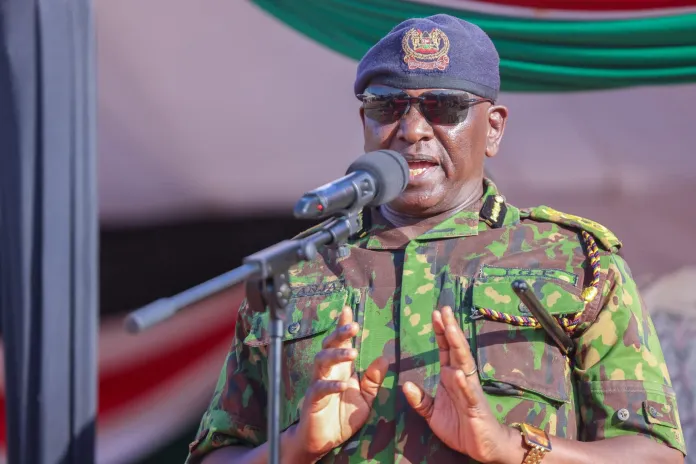A legal dispute over who controls the recruitment of police officers in Kenya has escalated, with both the Attorney General (AG) and Inspector General of Police (IG) backing a case that challenges the role of the National Police Service Commission (NPSC). The matter, now before the Employment and Labour Relations Court in Nairobi, has sparked debate over the balance of power within the country’s security sector.

The petition was filed three weeks ago by former legislator John Harun Mwau, who contends that the NPSC’s involvement in police recruitment is unconstitutional. Mwau argues that recruitment falls squarely under the command – and – control authority of the Inspector General, as outlined in Article 245 of the Constitution, and that the Commission’s participation undermines the operational independence of the police.
According to Mwau, the recently enacted National Police Service Commission (Recruitment and Appointment) Regulations, 2025, unlawfully extend the Commission’s powers, violating Article 2(4) of the Constitution, which declares that any law inconsistent with the Constitution is null and void. He is therefore seeking a declaration that the regulations are unconstitutional and should be annulled.
In a show of support, the AG and IG have aligned with Mwau’s position, emphasizing that police recruitment is a key element of the Inspector General’s command duties. They argue that allowing the Commission to manage recruitment disrupts the chain of command, potentially compromising the effectiveness and cohesion of the police service.
The case highlights a growing tension between the NPSC, which oversees appointments and promotions within the police, and the Inspector General, who leads the operational command of the service. Legal experts note that the court’s ruling could have far-reaching implications for how police officers are recruited and the distribution of authority between constitutional bodies.
As proceedings continue, all eyes are on the court to determine whether the NPSC’s role in recruitment oversteps constitutional boundaries or if the Inspector General’s authority should remain the sole guiding force in police staffing. The outcome may redefine the relationship between the NPSC and the Inspector General, setting a precedent for future governance of Kenya’s national security institutions.
Discover more from ULIZA LINKS NEWS
Subscribe to get the latest posts sent to your email.



